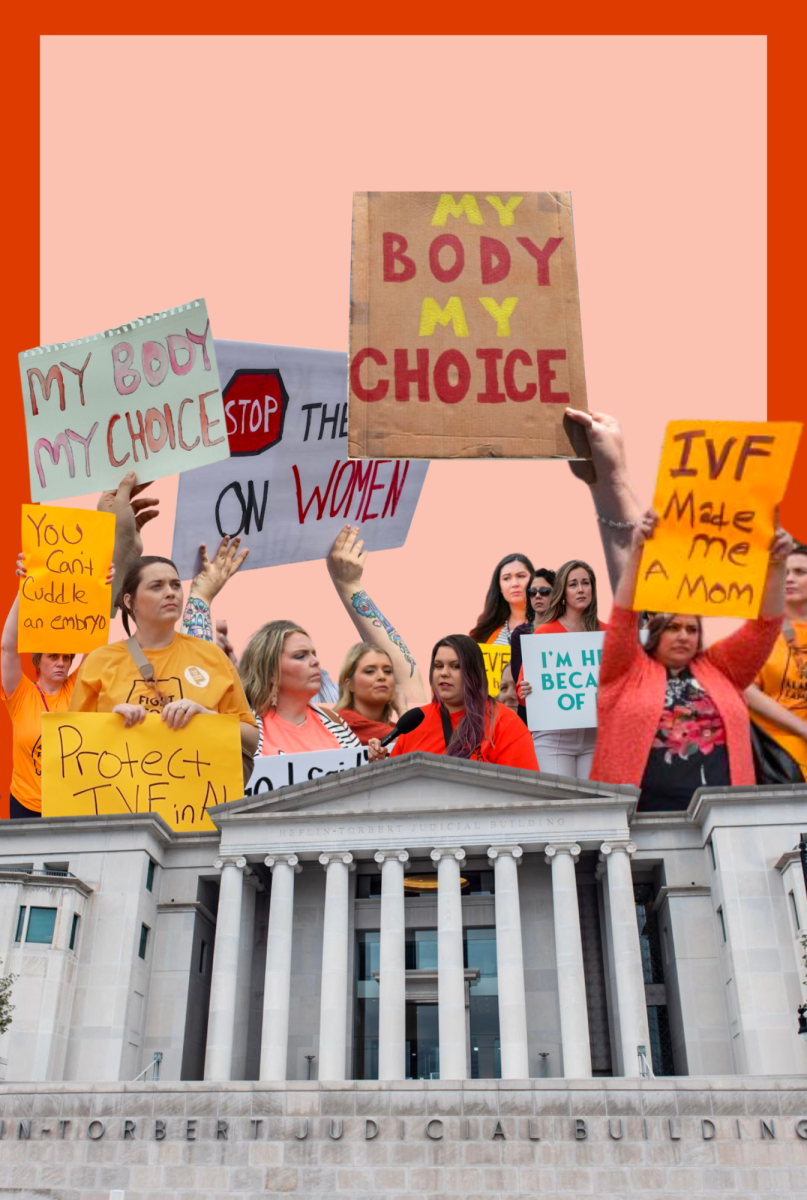On Feb. 16, 2024 the Alabama Supreme Court ruled that frozen embryos are legally children. This means people can be held responsible for any harm to or destruction of the embryos. This case began as a lawsuit in a lower Alabama state court.
The lawsuit was brought by three families who had frozen embryos accidentally damaged by a medical professional, making the embryos unusable. The case was dismissed at the state level, but plaintiffs appealed; the case went to the Alabama Supreme Court who ruled that the embryos are considered children under Alabama’s Wrongful Death of a Minor Act of 1872.
Embryos gaining the same rights as children has serious implications for reproductive rights, including In Vitro Fertilization (IVF). IVF is used by people to address fertility and genetic issues.
During an IVF procedure, eggs are removed from the ovaries and fertilized with sperm outside of the body before being inserted into the uterus.
Alabama’s IVF clinics are now in a state of uncertainty due to the nuances of the new ruling and the risks that come with embryo freezing.
According to information on the Johns Hopkins website, when embryos are prepared for transfer, there is a small possibility that they may be damaged or destroyed inadvertently and therefore unable to be successfully transferred.
Grayson Dempsey is the Director of Public Affairs at the Lilith Clinic (and Lincoln parent), Oregon’s only independent owned abortion clinic, and has been an activist in the abortion rights and access community for the last 25 years. In an interview she said that the Alabama Supreme Court ruling has implications for access to and the future of IVF treatments.
“In Alabama, they have shut down all IVF and related services because there’s uncertainty around the ruling. A lot of doctors, rightfully so, when there’s this kind of ruling that comes down, get worried about what their criminal liability would be, what they’re going to be covered for and in terms of insurance,” said Dempsey. “Due to clinic closures, many [people] in Alabama are either about to start, currently undergoing, or have frozen embryos for IVF treatment, [they’re] all facing a difficult waiting period.”
On Jan. 22, 1973, the Roe v. Wade Supreme Court Case issued the decision that protected the right to reproductive choice. On June 24, 2022, the Dobbs Supreme Court Case overturned this decision, re-establishing the ability for each state to determine their reproductive rights. Only 17 states still have laws in place that protect the right to abortion. Oregon is one of the few states that has laws in place protecting the right to abortion.
Lincoln Political Economy teacher Patrick Magee-Jenks sees the impact that the overturning of Roe v. Wade has had on the recent laws that limit reproductive rights.
“I think it has everything to do with the Dobbs decision,” he said. “I don’t think that this [ruling in Alabama] would have even made it to the courts if it wasn’t for the Dobbs decision, and giving states that ability to decide for themselves.”
Dempsey believes that these kinds of restrictive laws lay the groundwork for the future in other states.
“This decision wouldn’t necessarily be replicated in other states, but if there’s an acknowledgement and agreement that an embryo has personhood rights, then states could start to pass laws that ban and outlaw IVF or they could start to pass laws that take other extremes. Supreme Court decisions create a framework in which laws can move forward,” said Dempsey.

